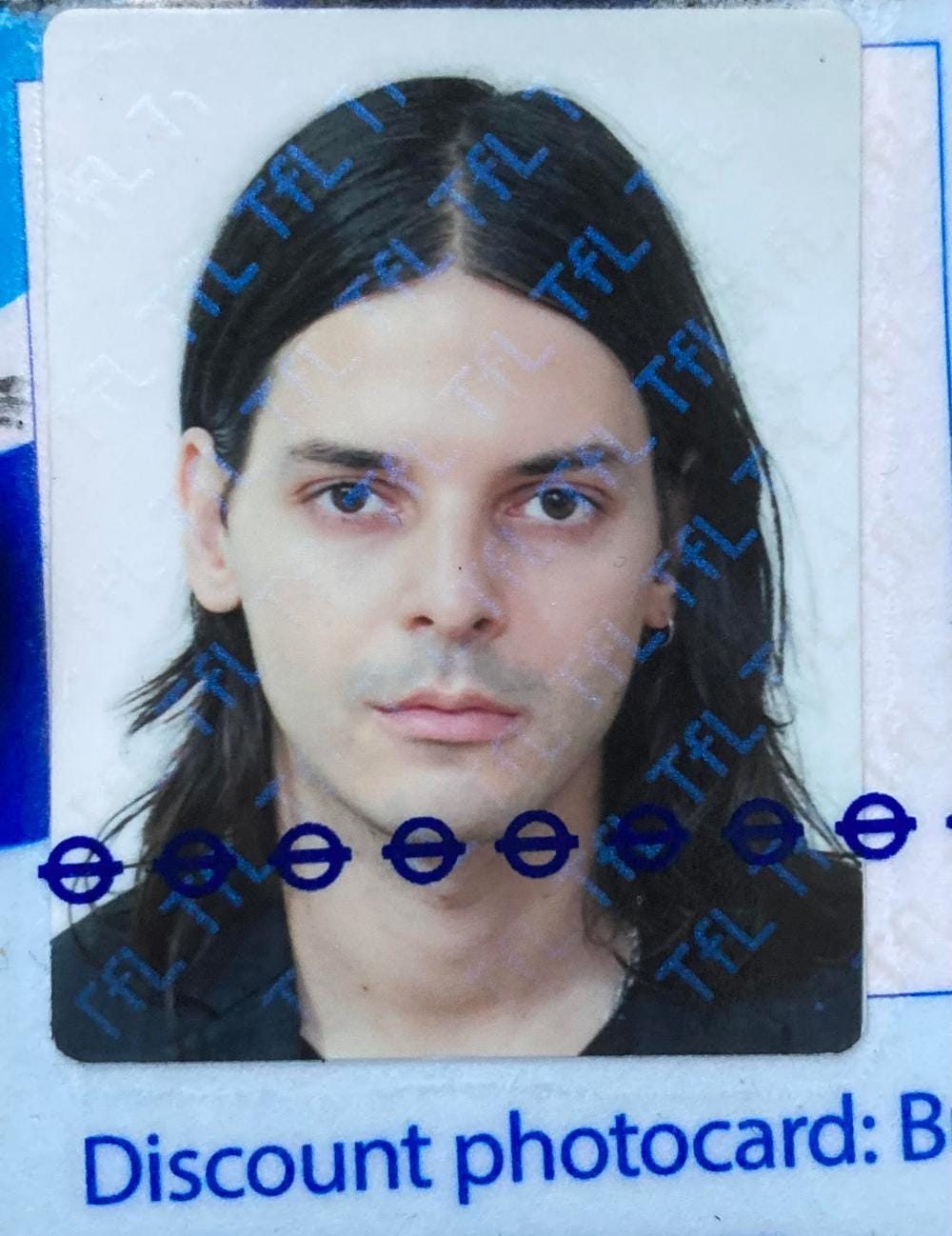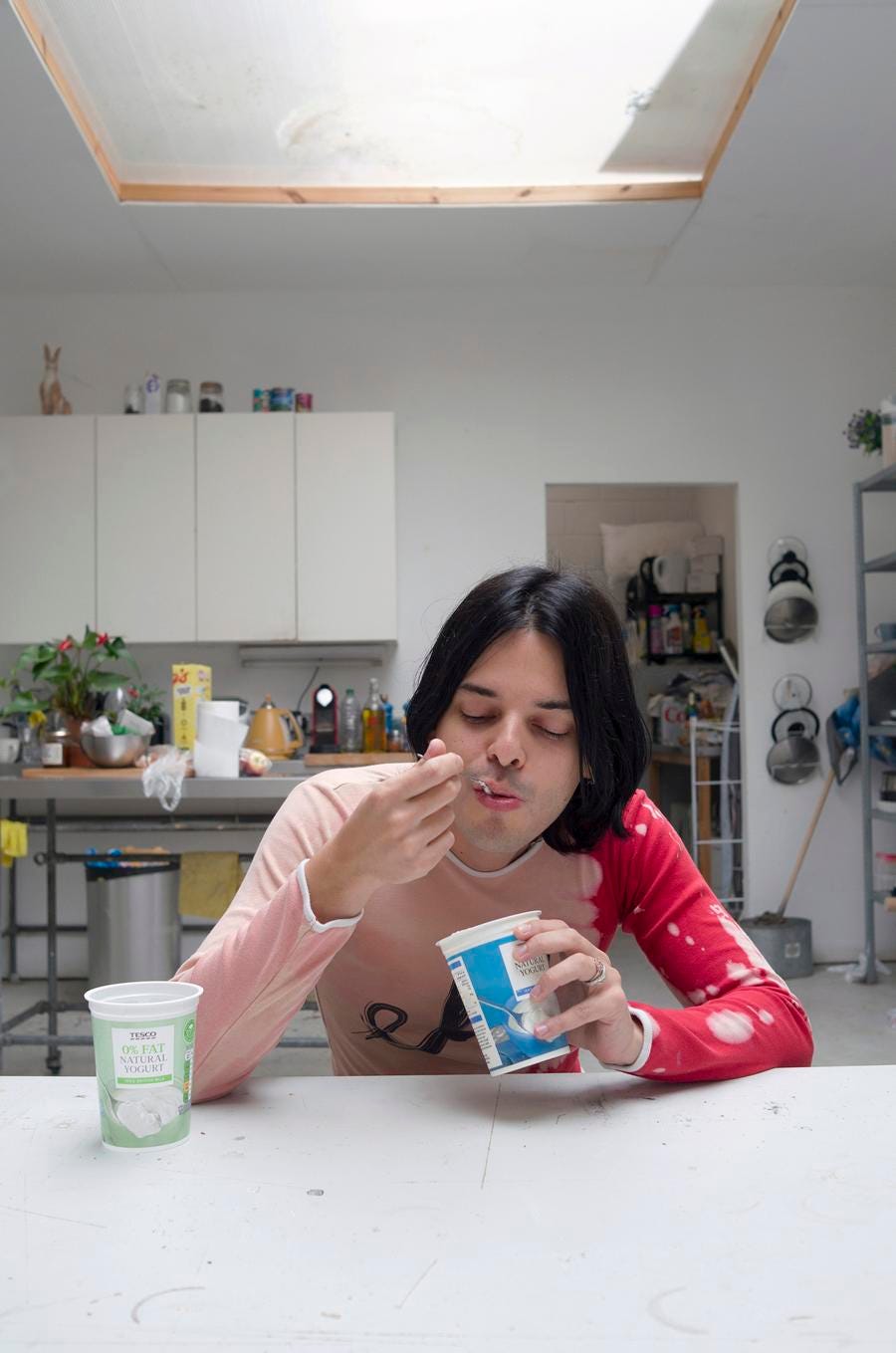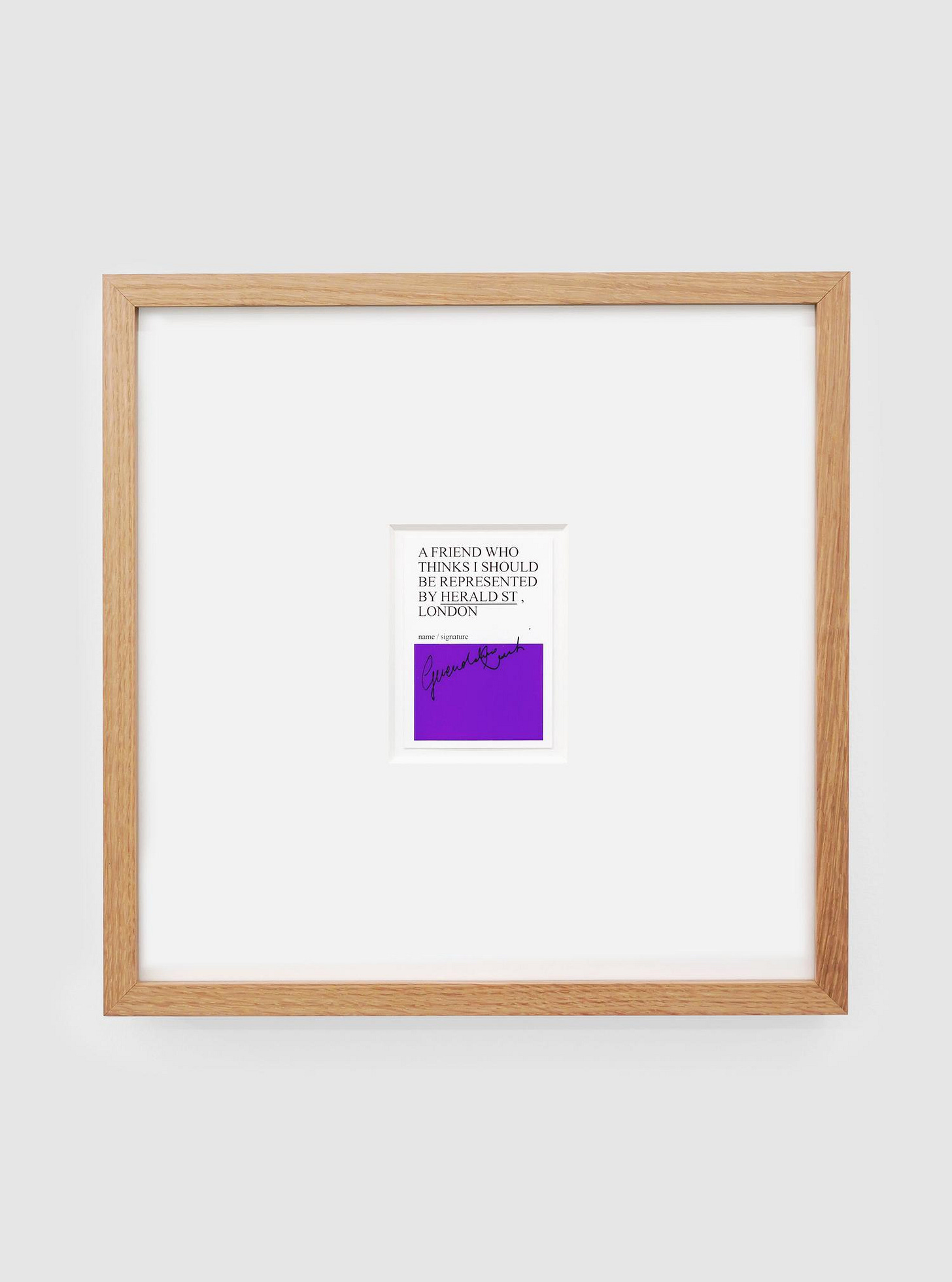No Obvious Benefit: An Interview with Dani Marcel
By Jacob Barnes
Jacob Barnes: You exhibit sculptures and paintings, do performances and even make a lot of work that seems —kind or unkind — like a joke at first. They also seem to range thematically. What is important for you when deciding to work with a theme?
Dani Marcel: There are definitely recurring themes, I’d say: a loose bunch of ideas around effort, absurdity and social transactions.
My work is a form of self-telling; it’s about me, it’s autobiographical. But it’s not confessional, and not even very personal at all. In some senses, I’m trying to take up where people like Bas Jan Ader left off — artists who entangled what they acted out and their actual lived experience.
I’m very interested in this message-like living. It’s also part of a larger project. There seems to be a shift, with art being understood more and more in terms of who is creating it. The project is to come up with a counter-method to approaching art through solely this lens of identity. While, as you said, I also make sculptures and paintings, this is the main project, to try to create a shadow for identity-based art; a variant, a sort of impersonal personal way of making art.
JB: Let’s talk a little more about themes. You said you are interested in absurdity and effort.
DM: I like to work on projects that are of no obvious benefit to the world. And they’re often gruelling. For example, I don’t normally make readymades and whatever seems to be that at first glance is actually reconstructed, or redone in some way.
Also with performative works: I ate a yoghurt every day for a hundred days instead of going to the studio. Or last year, when I wanted to leave London but couldn’t, I took all the buses in the city in a performance titled The World.
I ended up sitting on buses for almost a month.
JB: : I saw the gradual updates on that one. So when you said you make “life events” earlier, they are not so much pivotal moments, or at least they are not selected for being pivotal.
DM: Made-up challenges are very interesting to me, because they express both a lack of influence and a powerful will for self-determination. Mundanity too, using the art-like expressive potential of simple actions. Kids would jump on every second slab of the pavement, and quietly win in this mini game. Pope L. said that he came up with his crawls because he wanted to do something that didn’t depend on anybody. No favours. I found that explanation very moving.
JB: But another line of your work is focused directly on the world of favours and dependencies. And I mean the works about the art world.
DM: I’m a latecomer to the art world. I hadn’t been to an exhibition until I was twenty-three and hadn’t done one until I was twenty-five. There were no artists in or near my family either: my parents are architects and that meant, somehow, that all the people they knew were also architects.
The art world has a lot of frustration, so that naturally finds its way into my work. When I was asking people which gallery they thought I should be represented by for my Gallery Poll (2023), or when I paywalled my application to the Rijksakademie, I was trying to give readable form to these emotions.
JB: So this leads back to the question of social transactions, which you pointed to as another one of your topics.
DM: Well, the art world is, of course, very transactional, and I make work about that. But also, I see transactions as a way of connecting to the people seeing my work, almost forcing a relationship. It’s good to give up powers. I have a series where I try to become indebted to the viewer.
JB: As a last question: what’s next?
DM: I’m usually trying to avoid becoming what I call an “Infinite Artist.” Like when you have the format set, and you could, if wanted to, churn out a lot of new work within that, ad infinitum. I think painters often work this way, but it just never does it for me. I must try to reinvent the wheel every time.
I will do two smaller shows in Budapest this spring, for the first time since I moved away, and I’m working on some larger performative pieces.





